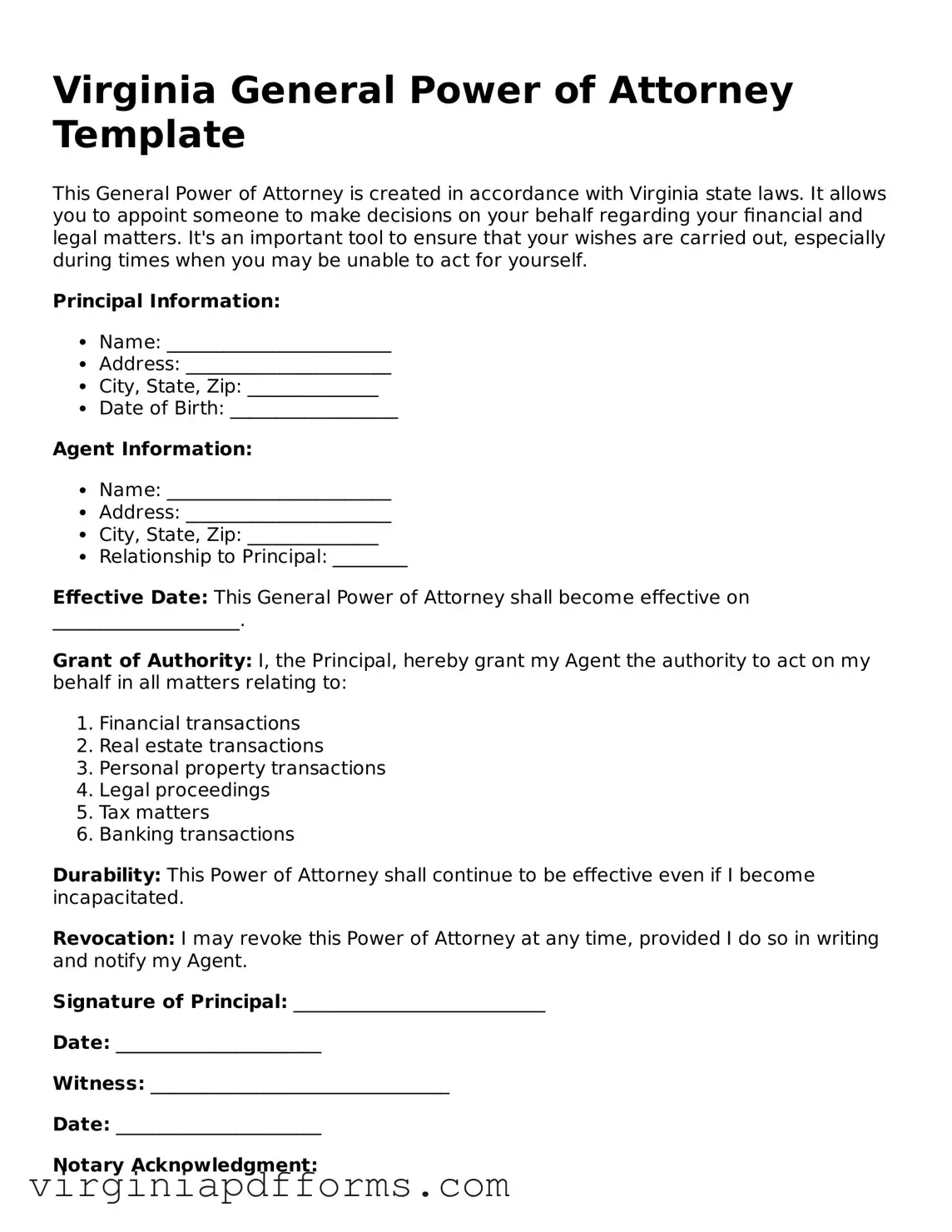Attorney-Approved Virginia General Power of Attorney Document
A Virginia General Power of Attorney form is a legal document that allows one person, known as the principal, to grant another person, called the agent, the authority to make decisions and act on their behalf. This form can cover a wide range of responsibilities, from managing finances to handling legal matters. Understanding its implications is crucial for anyone considering this powerful tool in their personal or financial planning.
Access My Document Now

Attorney-Approved Virginia General Power of Attorney Document
Access My Document Now

Access My Document Now
or
Free General Power of Attorney File
Need this form wrapped up fast?
Finish General Power of Attorney online — edit, save, download without effort.